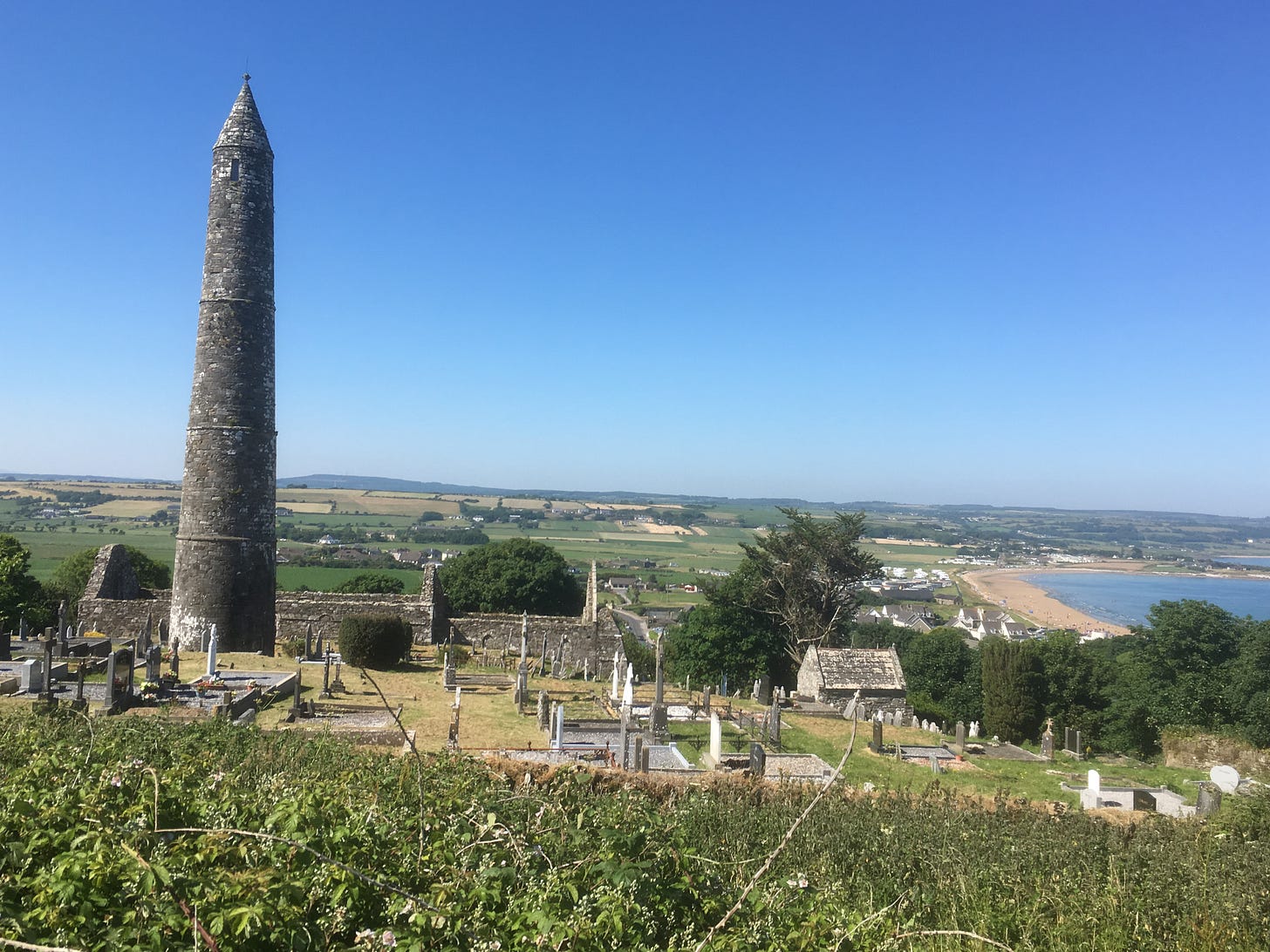Photo: RS (Ireland, summer 2018)
Listening to the readings today, we may feel a bit puzzled. In the first reading (Eccl. 1:2, 2:21-23), we hear that someone who has worked hard and given even some of his earnings to the poor is not being praised for doing a good thing but is said to be suffering from vanity. Likewise, the gospel parable is puzzling (Luke 12:13-21). A man has worked hard and seems to be planning his retirement so that he can take life easy, eat, drink, and be happy, and yet God is telling this man that he is a fool. That he does not control his own life, let alone his future.
Instead, with the story, Jesus seems to want to remind his listeners, including you and I, that looking after our earthly treasures and preparing our earthly future is not what is essential in the eyes of God. These activities are not going to have any value when we try to enter the kingdom of heaven. If we stop our reflections right here, that would be bad news.
I want to suggest that the good news can be found in St. Paul’s letter to the Corinthians, the second reading that we heard today. But to get to the good news, we must confront some uncomfortable facts deep within ourselves and our church.
As you will be aware, the church has a synodal process. It is not an opinion poll, seeing what decisions would make the church popular again in society, but a search for ways of an honest conversation in an organisation that, over the last few years, has been caught up by scandals, cover-ups, and denials of all sorts of things. The drive for an honest conversation sounds sympathetic but can also be experienced as a threat. How can you ask me to publicly speak about the deepest wounds in my soul due to how the church has treated me? Or how can you ask me to open up about the many nights I felt alone whilst praying, and no one seemed to come to comfort me? You may have your own wounds to carry. However, painful as it is, we cling to these wounds. We use them as a shield to protect ourselves. Strangely, they become like earthly treasures that we store to keep the church and God at a safe distance so that we can live easy lives. And then we suddenly hear today the words of Saint Paul:
…for you have died, and your life is hidden with Christ in God.” (Col. 3:3)
And we realise that everything we have done so far is nothing more than a refusal to die—a refusal to take up our baptismal commitment. The “I” that is protecting himself against the world, against the church, the “I” that gets involved in legal disputes or wants to store up treasures to live a quiet life, is the old Adam, the old Eve, sinful, cut off from God.
Picture: RS (Ireland, summer 2018)
But the “I” that takes his baptism serious, who trusts that his life is now hidden in Christ, will find, slowly, bit by bit, a kind of resurrection, rolling away the big stones - our treasures or wounds - in our lives that have closed us in a tomb of our own making. Christ is everything, and he is in everything, writes Saint Paul. And this is the Christ we meet in the sacrament of the Eucharist.
The good news is that when we receive Him in our lives, we can lead lives that are much more than merely eating and drinking and being happy in a sheltered cocoon. They become lives ready for the kingdom of God. Through our baptism, you and I were called to that eternal life. Today, you and I are invited to begin a new story, walking with Christ away from the ruins of what we thought was important to protect us. They are no longer needed. We are with Him, and He is with us.
Always.
More on this theme in Col 3:3: see James Allison’s “Faith beyond Resentment” (2001), Chapter 2 “Theology amidst the stones and the dust.”





